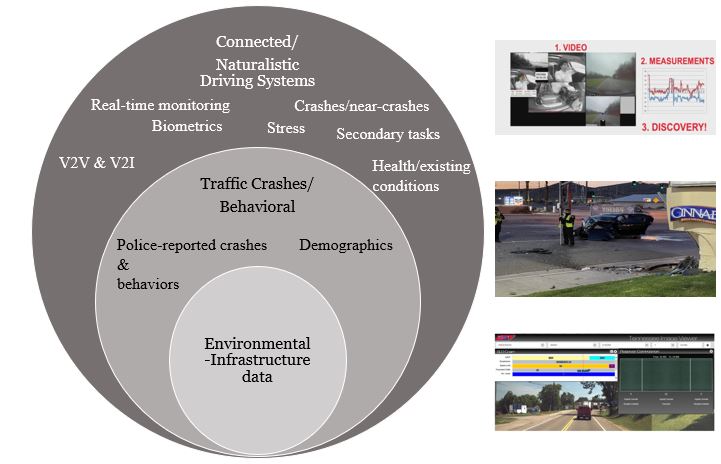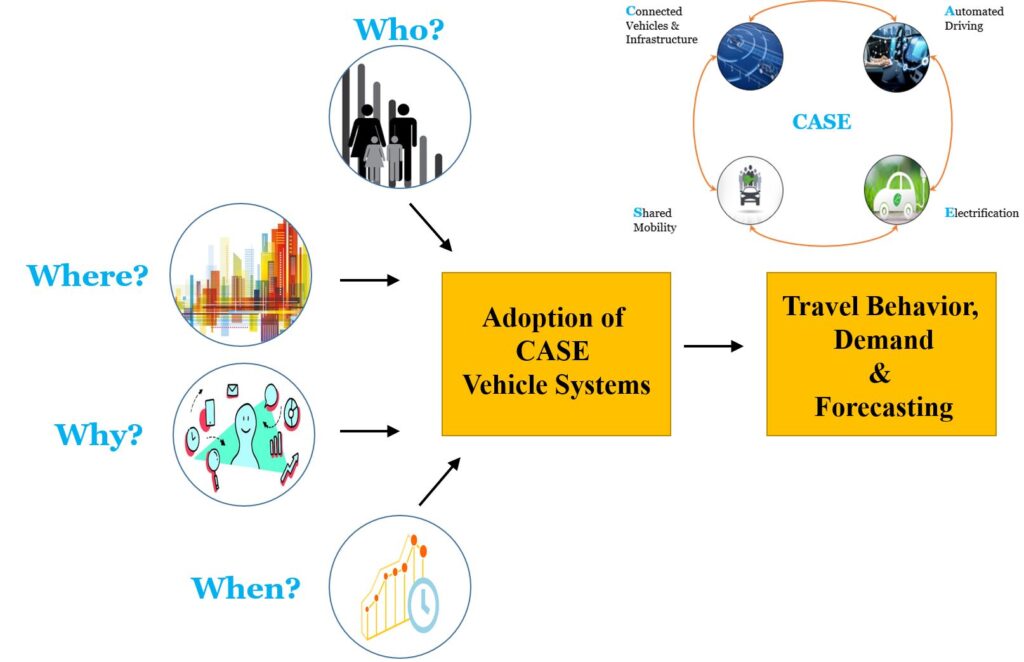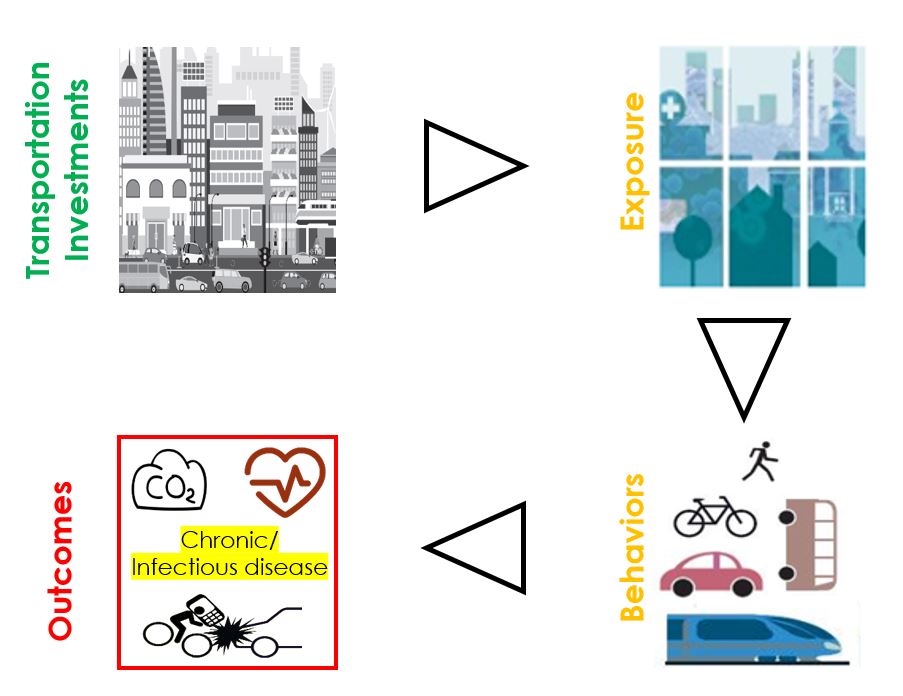
Research Issue
Research Approach

Research Contributions
With a big data-driven perspective, my past and ongoing research focuses on obtaining a better, spatially-referenced, understanding of behavioral elements in existing/future surface transportation to proactively tackle safety, smart mobility, and health challenges.
Proactive Safety
Traditional and emerging sensor-based data streams are integrated to capture information on a broad spectrum of roadway, driver, vehicle, and environmental factors. Using the hugely expanded data infrastructure to develop new surrogate safety measures from kinematics, health biometrics, GPS traces, CAV based BSMs, and processed video information – ultimately pieced together in advanced econometric & predictive AI models to paint a fuller picture of existing and future crash risk involving motorized and vulnerable road users.


Connected, Automated, Shared,
& Electric (CASE) Mobility
Understanding behaviors, preferences, and attitudes of modern populations towards a CASE-driven smart urban mobility system. Using stated/revealed preference population surveys and large-scale ambient sensing-based mobility traces to develop new methodological and behavioral frameworks to examine and forecast the adoption of CASE systems.

Transportation & Health
